Open Mike Night: Wonder Woman (1968) #178 and #179
FTC Statement: Reviewers are frequently provided by the publisher/production company with a copy of the material being reviewed.The opinions published are solely those of the respective reviewers and may not reflect the opinions of CriticalBlast.com or its management.
As an Amazon Associate, we earn from qualifying purchases. (This is a legal requirement, as apparently some sites advertise for Amazon for free. Yes, that's sarcasm.)
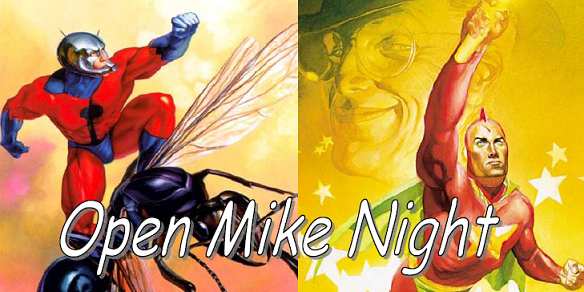
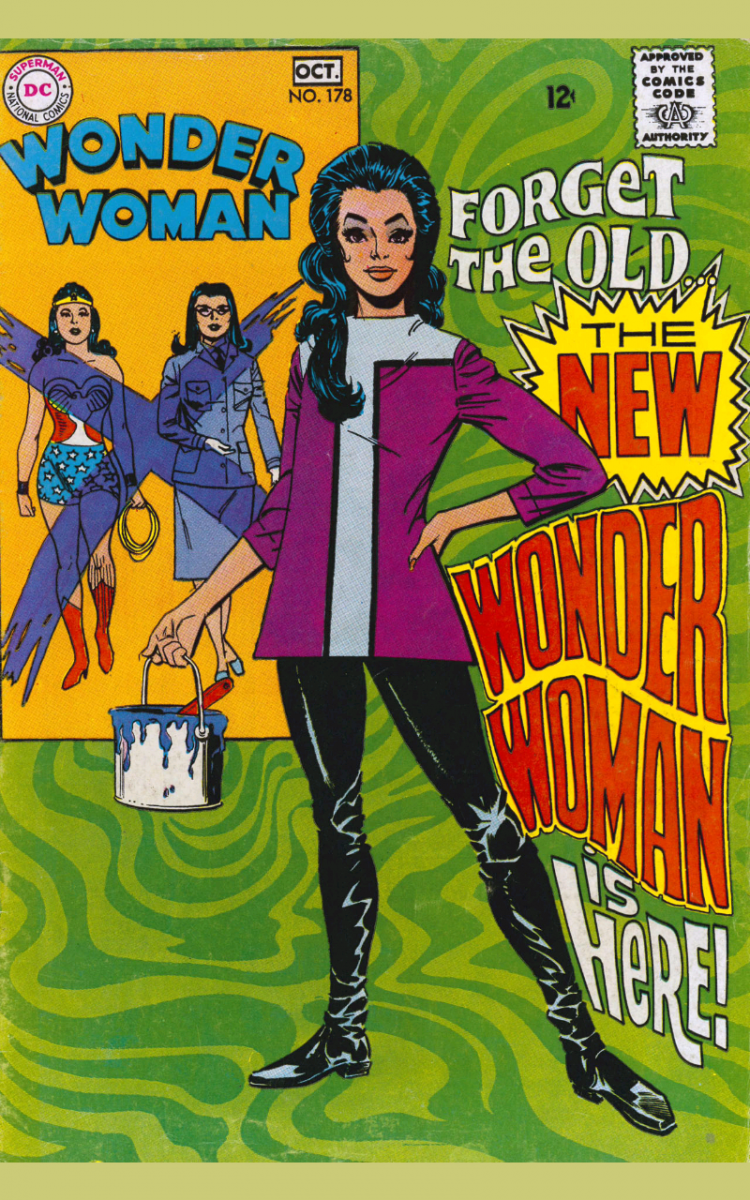 Wonder Woman (1968) #178 and #179
Wonder Woman (1968) #178 and #179
Written by: Dennis O’Neil
Pencilled by: Mike Sekowsky
Inked by: Dick Giordano
Published by: DC
Cover Price: 12 cents each
Mike Maillaro: So, after talking about Wonder Woman’s new status quo, we decided to hop back to 1968 where DC proposed some huge changes to Wonder Woman. They got rid of her powers, turning her into a sharply dressed “spy.” Clearly this change in direction wasn’t all that successful, as it didn’t last long, but I do have to give DC some credit for swinging for the fences here.
Issue 178 serves as a lead in. Steve Trevor is accused of murder, and Wonder Woman in her human guise of Diana Prince goes to investigate. In the end, Wonder Woman is able to proof Trevor innocent, but Trevor seems to be falling for Diana (he doesn’t know Diana and Wonder Woman are the same person). What was really odd about this issue is that even though Steve and Wonder Woman seem to be together, he seems to have no problem trying to pick up chicks at 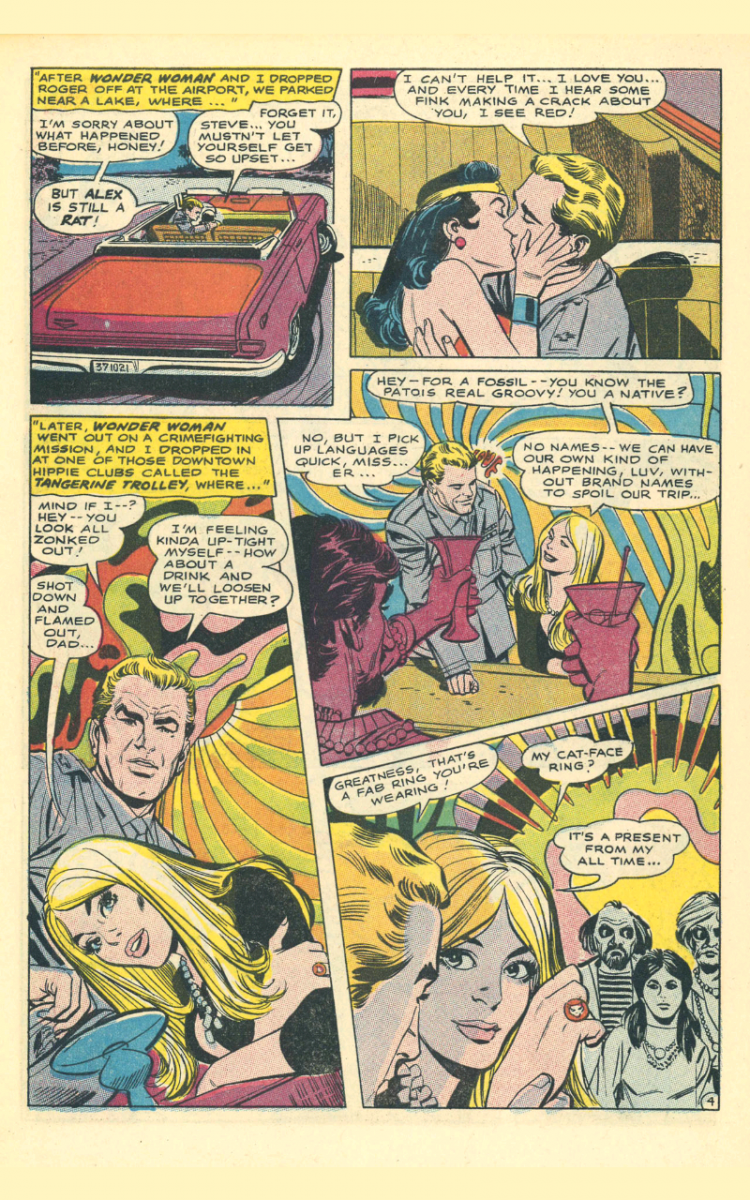 every opportunity. The Swinging Sixties, baby!
every opportunity. The Swinging Sixties, baby!
Issue 179, starts with Steve Trevor going undercover pretending to be a traitor to the United States in order to get close to a villain named Dr. Cyber. Meanwhile, Wonder Woman is called back to Themyscira. Themyscira is about to vanish into the void. Wonder Woman has to choose between going with it, or staying on Earth, separated from her friends and family and without powers. She chooses Earth. Back on Earth, she finds a little man named I Ching waiting to teach her martial arts. It takes months, but she’s ready to resume her search for Steve Trevor. Wonder Woman and I Ching take the fight to Dr Cyber’s evil toy factory. They rescue Steve, who’s in a coma, but there is a still a long way to go to stop Dr Cyber.
Mike Weaver: Supposedly, this change in direction was meant to be a step towards showing a regular woman in a positive light on the crime fighting front. After all, there’s dozens of heroes that are basically just normal dudes, from Batman to Green Arrow, and while there was Batgirl, she was far from a major player. So this was to be a pro-feminist message.
Only...the whole thing ends up tied into how much she wants to do everything for Steve Trevor, and how upset she is when she feels like she disappointed him. In any event, taking it out of the overall subtext, let’s talk about the swinging sixties and the Tangerine Trolley.
Granted, I’m mint 1970’s, so I wasn’t exactly around at the time, but I do feel the attempts to throw in lots of sixties vernacular was a little heavy handed, to the point that I didn’t quite understand half the conversation. I don’t think Steve did either, but he did understand picking up chicks. The second story was teetering on the brink of unfortunate racial stereotypes with I Ching, from his name to his cadence, but I think that they managed to just barely end up on the “enough positive things to somewhat forgive that” end. There was a lot of swinging for the fences here, and I do give them credit for that, but I’m pretty sure this was just a long foul ball.
Maillaro: Yeah, I Ching was a real odd one for me. I am not sure they could have possibly gotten any more stereotyped if they try. Vague Asian dude who is blind, but wise in martial arts. It’s not even clear why this guy ended up helping her. I guess he just knew she needed a mentor.
And the timing of the second issue was a bit strange. It tooks months for Wonder Women to be ready to find Steve Trevor...but when she found him, it was revealed that Cyber didn’t believe he was a traitor. So did Cyber just have him sitting tied to that chair for months in case Wonder Woman came looking for him?
I actually thought the 60’s slang worked well enough. It definitely feels dated, and I can’t imagine it was much better at the time, but I was just happy to see ”ginchy” in a comic that wasn’t Madman. For me, it was more of a problem for the weird little things that made no sense, like Trevor the Manslut and I Ching the convenient…
Weaver: Shot down and flamed out, dad. So I Ching gave a story about why he wanted to take down Cyber, and it was believable enough, but he never gave any indication about how he knew how to find Wonder Woman, and it doesn’t seem like he has any special ability to predict the future, so...
Maillaro: Beyond being a magic Asian…
Weaver: That’ll do it. But with Steve, I felt it was a little more spelled out. Cyber bitches out some of his flunkies on the Trevor issue, so I assume he was hanging out in the outer reaches of the Cyber Criminal Machine, and when Cyber finally took a look at him, he didn’t like what he saw. However, with “MUST HUNT STEVE TREVOR” headlines on every paper for months, I have a hard time believing Cyber waited all those months to figure out what his deal was.
Speaking of, Trevor’s whole thing about being a traitor...unless the guards were thought to also be traitors, you’d think that they could have had a slightly less deadly way to go undercover. “Go ahead and punch me, then hope no one shoots you.” Another little thing that bugs me is that the plot of the first issue is all guilt that Wonder Woman accidentally put Trevor in jail, but when a dude gets killed because he was about to tell her where the star witness was, she barely blinks.
Maillaro: She’s one cold bitch. But she lets her dude sleep around, so she does have that going for her. You know, we have reviewed a lot of books from a lot of different times periods, but not too many from the late 60’s. I wonder if they were all going through these bizarre shifts to try and stay relevant, or was this just a Denny O’Neil thing.
He would do similar things to Green Arrow/Green Lantern and Batman during his time with DC too. A lot more successfully and memorably than he did here, mind you.
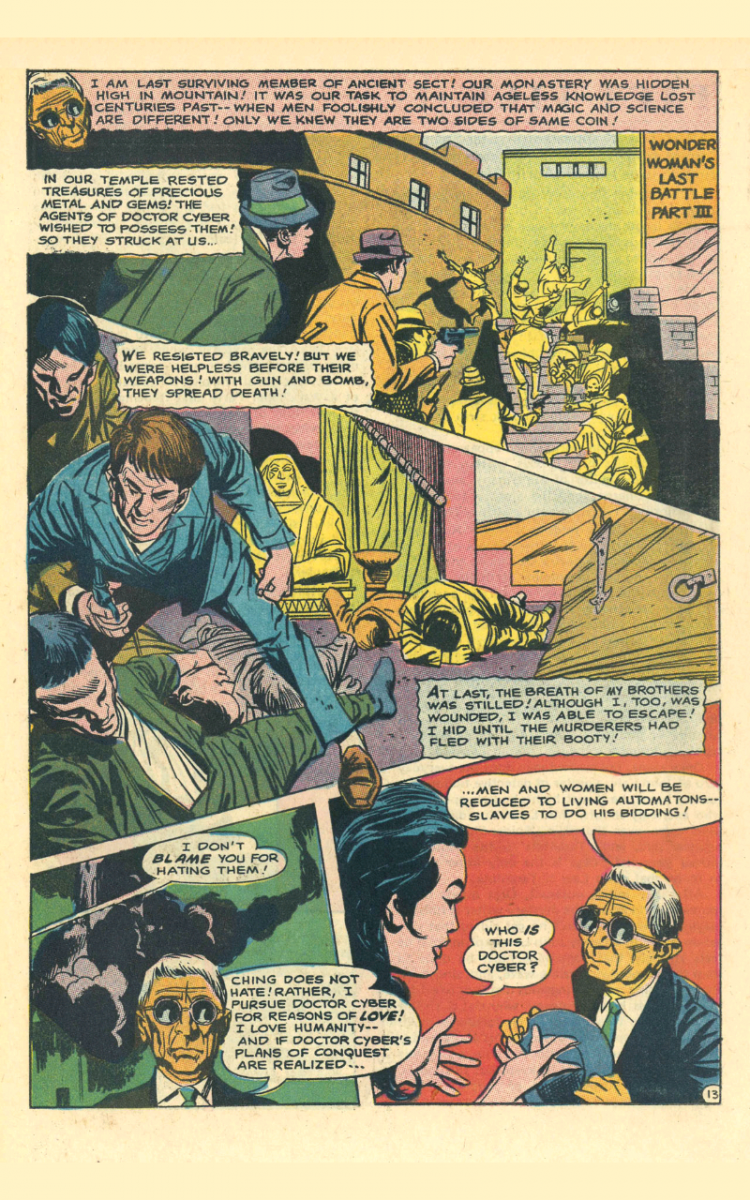 Weaver: I know that Wonder Woman and Green Lantern were struggling sales wise, and Batman was considered sort of toxically camp after the TV show. I don’t know the real answer. Maybe we should bookmark this date and figure out what other comics were doing at the time.
Weaver: I know that Wonder Woman and Green Lantern were struggling sales wise, and Batman was considered sort of toxically camp after the TV show. I don’t know the real answer. Maybe we should bookmark this date and figure out what other comics were doing at the time.
For scores, I actually really like the funky Steranko inspired art. I’m giving it a 4.5, with the half point docked for the coloring of I Ching.
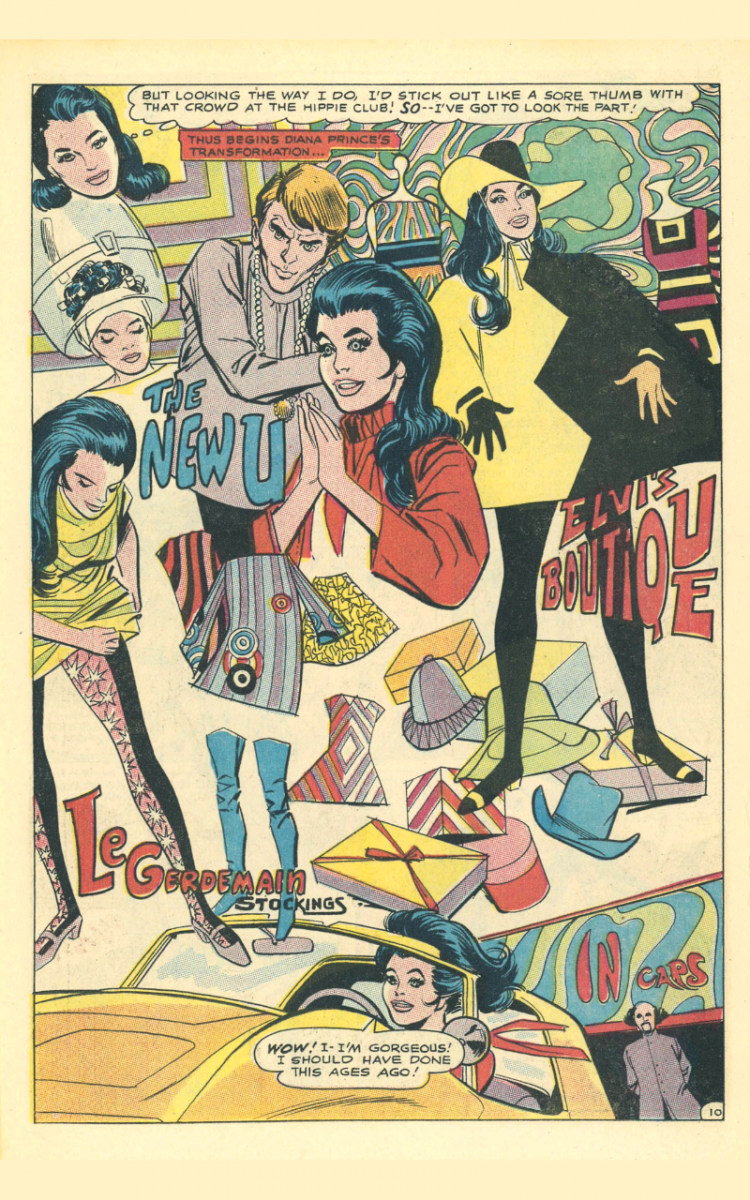 Maillaro: Yeah, the art was pretty hot. It was like Barbie and Steranko’s Fury had a baby. I Ching’s coloring in awful, but I guess you have to excuse it sort of as a product of the time. I did think the toy weapons at the end were kind of lame looking, so same score, just for a different reason. For the writing, I do like what they tried to do here, but it just fails more than it succeeds. I think a 3 is a pretty fair score…
Maillaro: Yeah, the art was pretty hot. It was like Barbie and Steranko’s Fury had a baby. I Ching’s coloring in awful, but I guess you have to excuse it sort of as a product of the time. I did think the toy weapons at the end were kind of lame looking, so same score, just for a different reason. For the writing, I do like what they tried to do here, but it just fails more than it succeeds. I think a 3 is a pretty fair score…
Weaver: An A for effort, but yeah, a 3 is pretty much exactly where it needs to be.
Maillaro: Unfortunately, I will basically be on hiatus for the entire month of July between work trips and vacation.
Weaver: Let’s reconvene in August, then. Enjoy your summer.
Maillaro: Same to you, my friend!
Final Scores
|
Maillaro – Story (out of 5) |
Weaver – Story (out of 5) |
Maillaro – Art (out of 5) |
Weaver – Art (out of 5) |
|
|
Wonder Woman #178 and 179 |
3 |
3 |
4.5 |
4.5 |


